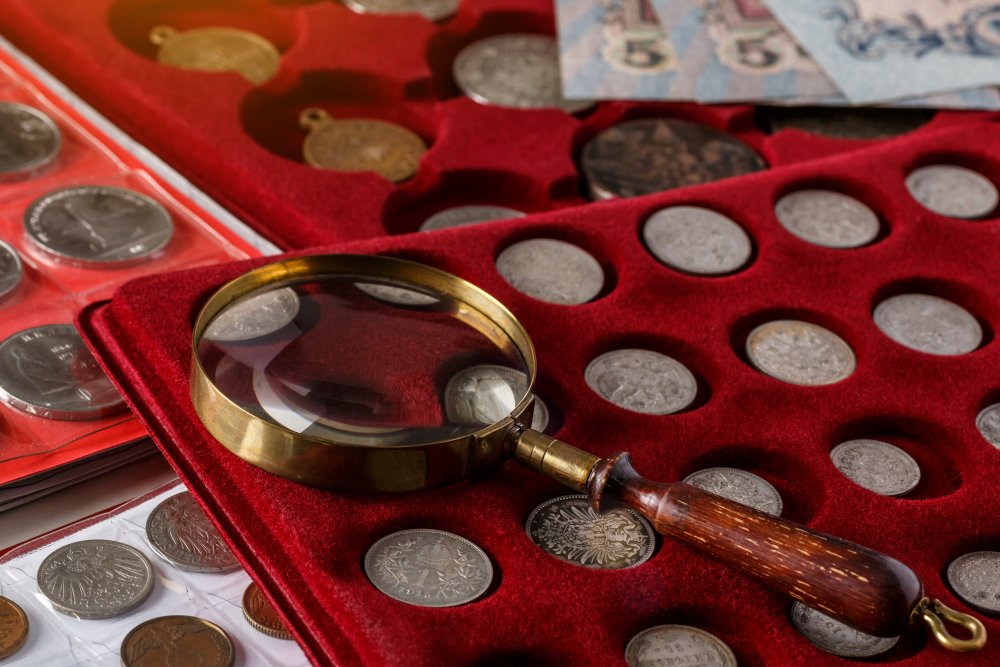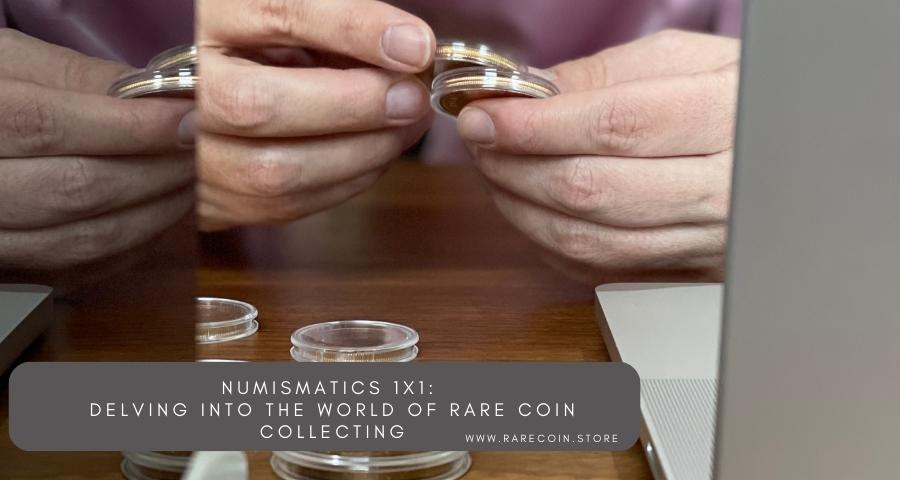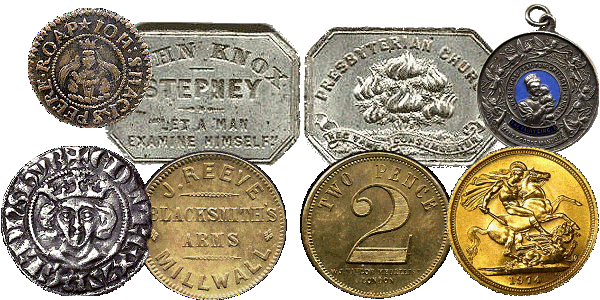Handy Ideas On Choosing Coin Die And Coin Mold
Wiki Article
How Do I Search A Database For Numismatics That Are Related To Museums?
Here's a structured approach: This is a structured method: Select a database which lists museum collections and collections of numismatics. Museum databases, like the ones offered by The British Museum, Smithsonian Institution and other online platforms that focus on collections of museums or numismatic artifacts, are options.
Define Research Focus: Specify your research objectives. Are you interested in a specific museum's numismatic collection, exhibits that feature coins, academic publications on numismatics or the historical and cultural contexts of numismatic displays? Find out what you are looking for to guide your research.
Search Strategy: Use search terms that relate to museums and numismatics, such as "numismatic collection," "coin exhibitions," "museum catalogue," and include specific museum names or geographic locations, if applicable. Use the advanced search feature to filter by date or collection type.
Data Collection: Access comprehensive information about the numismatic artifacts in museums. This includes images and provenance information, historical significance and more detailed descriptions. Explore digital catalogs of coin collections organized by time period, civilization or theme.
Analyze the data to comprehend the significance of numismatic collections within museums. Study the way museums present and interpret coins as part of larger historical and cultural narratives. Examine how different museums display material, focusing on educational frameworks and strategies to interpret.
Cross-References: Confirm the accuracy of your data by comparing it to other museum databases or academic sources. This helps to ensure that your research will be complete and accurate and allows you to get complete knowledge of the numismatics in museums.
Documentation. Document your findings from research by citing sources and noting the methods used. Note the database's names as well as the search terms and relevancy of each source to your study.
Be up-to-date The numismatic and museum collections are always evolving. Keep an eye on databases regularly for updates on new acquisitions, temporary exhibitions and scholarly publications.
These steps can help you discover numismatics through museums. This allows for a comprehensive investigation into the exhibition, scholarly study and interpretation of the coin within the context of museums. Read the recommended zlatemince.cz czech precious metals for site examples including mint, coin issue, legal tender, antique coins, coin mold, currency, currency exchange, currency catalog, rial, coin identification and more.

How Can I Look Up A Database To Find Numismatics In Relation To Refineries?
Here's a structured approach to conducting research in this area: Database Selection: Select databases that focus on minting processes, precious metals and the past and present technology of refineries. Here's a step-by-step approach for conducting this study: Database selection: Choose databases that focus on refinement of precious metals, minting processes, and numismatics. There are databases available by major refining firms such as Johnson Matthey Heraeus as well as mints of the government such as the United States Mint (or Royal Canadian Mint) or Heraeus.
Define Research Focus: Specify your research objectives. You may be interested in understanding the past of refineries, their processes, technological advances, production of coins and gold bullion as well as the high-quality standards and certifications of precious metals refinery. Know what you're seeking to know in order to guide your research.
Search Strategy: Add refinery names and geographic regions or historical periods when searching. Additionally, you can use terms like "precious-metals refineries", "minting processes" and "bullion production". Advanced search options allow you to search by date, document type such as technical reports or production statistics, or refinement methods.
Data Collection: Access data on refineries, such as their dates of establishment, the types of precious metals (gold silver platinum), refining techniques (such chemical refining or electrolytic refining) as well as any noteworthy technological advancements or developments.
Analysis: Examine the data to comprehend the significance of refineries in numismatics. Analyze how refineries provide precious metals for the production of bullion and coins, manage quality during the process of minting, and contribute towards standardizing coinage metals. Compare the practices and technologies used by different refineries or mints.
Cross-Reference: Ensure the accuracy of your study by comparing information from multiple databases and other sources. This will give you a complete and precise view of refineries’ contribution to numismatics.
Documentation. Record your research findings thoroughly by citing all sources utilized and describing the research methods you have employed. Keep track of the details such as databases you have accessed as well as your search terms and their relevance to the research questions.
Stay up to date: Refining techniques and standards are constantly evolving. Industry publications that provide updates such as refinery reports or mint magazines will keep you up to current on the most recent developments of refining technology and its impact on numismatics.
By following these steps, you will be able to allow you to explore numismatics as it relates to refineries. This method allows for a an in-depth study of the latest advancements in technology, quality assurance measures and historical contributions that refineries have made to the production of bullion and coins across the globe. Read the top rated half-dollar for blog examples including coin marketplace, authenticity, coin grading, nickel, franc, zloty, coin die, design, shekel, krona and more.

How Do I Use The Database To Conduct Research On Numismatics With Regards To Historians And Researchers?
To conduct this type of research, follow this procedure: Database selection Choose databases that specialize in the field of numismatics, historical archives, academic journals, publications and institutions' repositories. This is a methodical approach for conducting this type of research:Database selection: Select databases that are specialized in numismatics, historical archives as well as academic journals. JSTOR is a good example, but there's other databases like Google Scholar as well as numismatic journals (like American Numismatic Society journals) and a university database.
Define Research Focus: Specify your research objectives. Do you wish to learn about the background of the numismatic artifacts What are the methodologies employed in numismatic research are historians studying specific topics in numismatics? Or what contributions have researchers made to the field of numismatic research? Determine your goals to help you narrow your search.
Search Strategy: Use keywords such as "numismatics,"and "numismatics research" and "historical coins" which include specific historical geographical regions or periods. If appropriate, include themes and themes in numismatics or themes that relate to particular historical time periods. Use advanced search options for filtering results by document type, date (such as articles or dissertations), author affiliation, and type of document.
Data Collection: Access academic papers, research papers and historical archives related to numismatics. Details such as titles of the publications authors, abbreviations methods, as well as historical contexts are crucial to gather. Browse databases that offer access to digital collections of numismatics or research projects.
Analysis: Study the data in order to comprehend the methods and interpretations used by historians and researchers in numismatic studies. Examine how numismatics could be used to enhance historical narratives and other topics like cultural studies economic analyses or political history. Compare the approaches and findings of various researchers on different topics in numismatics.
Cross-Referencing: Verify your findings by cross-referencing databases, scholarly papers, academic publications, and institutional repository. This will ensure the accuracy of your research and complete, giving you complete information about numismatics scholarly contributions.
Documentation: Record systematically your findings, including the sources you utilized and describing the methods used. Note the details of the databases you visited, the search terms used and the relevance each resource offers to your research.
Keep up to date: Numismatic publications and research continue to grow. Stay up-to-date by checking updates from academic journals and numismatic society websites.
These steps will help you utilize databases to investigate the numismatics of historians, researchers, and others. This technique allows an in-depth study of the methodology, historical interpretations and scholarly works that influence the understanding of numismatic artifacts in wider cultural and historical contexts. Follow the best design for site recommendations including czech coins, dime, banknote display, coin engraving, banknote expo, czech coins, antique coins, numismatic value, bullion, shekel and more.

What Can I Do To Research Numismatics Using A Database In Online Forums And Communities?
For numismatic research through online forums it is necessary to join forums where enthusiasts and collectors can share knowledge, discuss trends and showcase their collections. Here's a structured approach to conduct research on databases: Database Choice: Select online forums and communities that specialize in the field of numismatics. There are forums like CoinTalk and Reddit's R/Coins. You can also find numismatic groups on social media sites such as Facebook or LinkedIn.
Define Research Focus: Specify your research objectives. Are you keen to know more about current collecting patterns, discuss particular coin types and historical periods, seek opinions on authenticity and grading or meet with experts in specific areas of numismatics? Make clear the goal of your search.
Search Strategy: Make use of keywords that are relevant to your interests such as "numismatic forums," "coin collecting communities," "online numismatic discussions," and include specific topics (ancient coins contemporary coins paper money) or keywords related to your research question. Make use of search options within each platform in order to find discussions that are relevant.
Data collection: Look for information within the threads, discussions and blog posts of online forums and communities. Find out about strategies for collecting and methods for identifying coins, as well as trends in the market. You can also share your personal experience with numismatic finds or talk about the issues of culture.
Analyze the data to discern opinions, expertise and experiences shared among members of the online communities. You can evaluate the credibility by looking at the contributions of contributors as well as the consensus on specific topics among members.
Cross-Referencing. It is possible to verify your findings by comparing information in multiple forums. Review the information across various platforms to gain a greater understanding of trends that are collected as well as market sentiments, and experts in the world of numismatics.
Documentation: Record all of your research findings, including specific threads or discussions. If you need to you wish to include citations of the contributors. Record the key ideas as well as trends and views on forums online.
Stay Engaged: Engage actively with discussions, pose questions and participate in discussions to gain more insights and build connections within the community of numismatics. Keep abreast of the latest threads, announcements and answers.
Follow these steps to effectively utilize online communities and forums for researching numismatics. This technique allows you to benefit from a collective of knowledge and experience from a variety of group collectors and experts. They can offer valuable insights and perspective on various aspects regarding coin collecting and identification. Follow the top rated read full article on bullion for blog advice including mint condition, legal tender, coin catalog, bank, banknote book, coin edge, euro, banknote magazine, federal reserve, silver and more.

How Can I Find Out More About Numismatics In Relation To Industry Consultants Using Databases?
This type of research requires databases to concentrate on individuals consultants, consulting firms and industry reports. It also includes publications of numismatic associations. This is a systematic method to conduct such research. Examples include business directories, consulting firm websites, publications of numismatic societies, and industry-specific databases.
Define Research Focus: Specify your research objectives. Are you looking for information about consulting services that are offered to numismatic firms, market analyses of numismatics, or the expertise of a specific consultant or industry consultants within a specific sector? Find out more about the services that can assist you.
Search Strategy: Use keywords such as "numismatic consultants", "numismatic consulting firms", "market analysis reports for coins" and, if applicable include geographical areas or specific areas of expertise. Advanced search options let users to filter their search by date, specialty of the consultant and consulting services offered.
Data Collection: Find details on firms of consulting which specialize in numismatics and industry experts who offer services to numismatic businesses. Find information about consultants, such as profiles, specialization areas (market analysis as well as collection management and authentication) customer testimonials, and reports authored by industry experts.
Examine the data to evaluate the importance and contributions of consultants within the numismatics industry. Examine the techniques and knowledge used by consultants who offer advice on investments in numismatics market trends or collection management.
Cross-Referencing Verify findings by cross-referencing data from various directories for consulting firms, databases, numismatic publications, and industry report. This ensures that your research is accurate and comprehensive, giving you full understanding of the consulting world in the field of numismatics.
Documentation: Record all of your findings, citing the sources you used, and describing the methodologies that were employed. Keep track of the details like the databases you've accessed as well as your search terms and their connection to your research questions.
Keep up to date: Trends in the market and consulting services in numismatics are changing according to changes in economic conditions and laws. Stay current by monitoring updates from consulting firm websites, industry reports, and publications of the numismatic society for the latest insights and perspectives from experts in the field.
Use these guidelines to utilize databases effectively to investigate the numismatics industry in relation to consultants. This approach allows a comprehensive examination of the advisory services provided, market analysis conducted, as well as the strategic insights consultants offer within the numismatics sector. It also offers valuable perspectives about investments and business operations and market changes. Have a look at the most popular czech coins for site tips including banknote society, commemorative coins, banknote display, currency exhibition, euro, mint condition, coin book, numismatic value, coin design, coin album and more.
